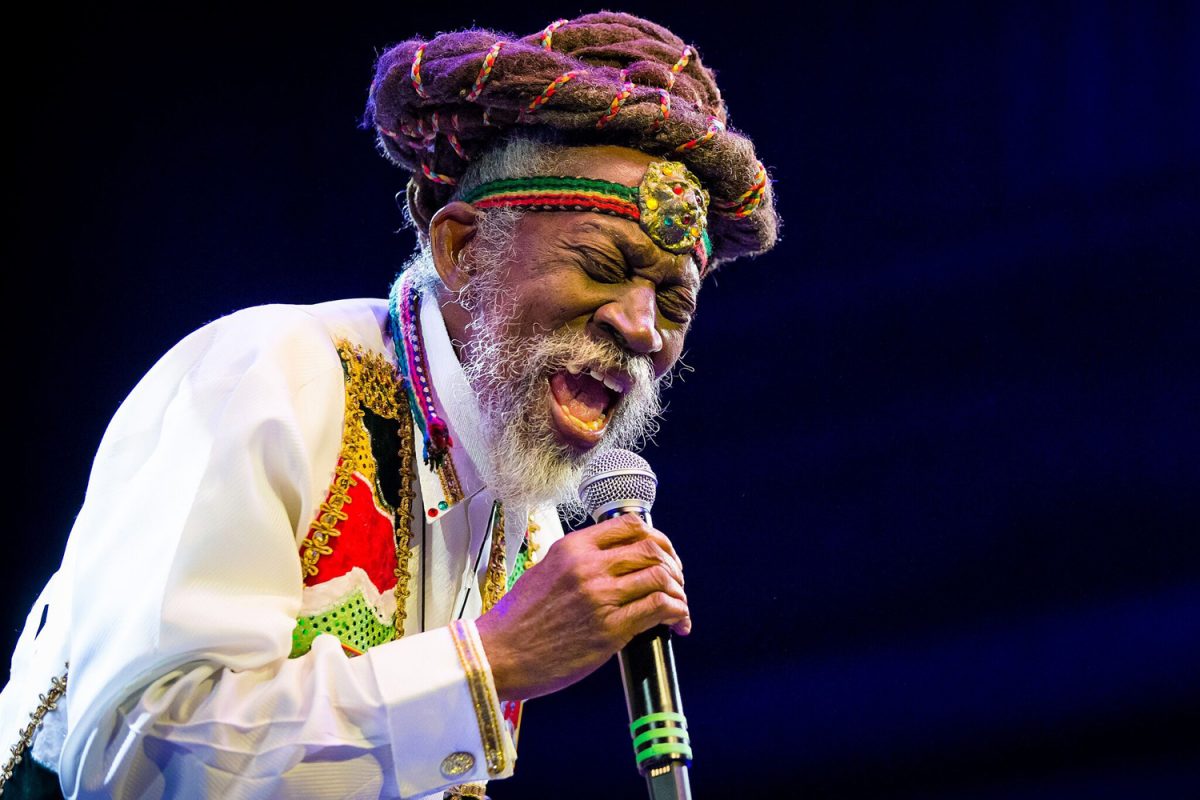Rastafarians Mark First Anniversary Of Bunny Wailer’s Death With Advocacy

Today, March 2 marks the first anniversary of the death of the late legendary music icon Neville ‘Bunny Wailer‘ Livingston. The Rastafarian community is using the occasion to highlight the invaluable contribution of Rastafarians to the cultural, spiritual and economic enrichment of Jamaica and the world.
“We are just celebrating with the Rastafari works of Bunny and his legacy which is linked to his lifelong advocacy on behalf of marijuana and his recognition of the significance of the Battle of Adwa, that is a major event on the Rastafarian calendar,” Maxine Stowe, Bunny Wailer’s former manager, told DancehallMag.
The Battle of Adwa was the climactic battle of the First Italo-Ethiopian War. The Ethiopian forces defeated the Italian invading force on Sunday 1 March 1896, near the town of Adwa. The decisive victory thwarted the campaign of the Kingdom of Italy to expand its colonial empire in the Horn of Africa.
According to Stowe, Bunny Wailer personally sponsored the first Ganja March in Jamaica on March 1st, 1996, which also marked the centennial anniversary of The Battle Of Adwa. The march formed part of a three-day event, which included an all-island rally.
“The annual Nyahbinghi celebration of the Ethiopian victory over Italy in 1896, is being memorialized and highlighted as Bunny’s Rastafari Legacy,” she said.
The Blackheart Man singer died on March 2, 2021, after a prolonged illness at the Andrews Memorial Hospital.
A staunch Rastafarian, Stowe said the Rastafarian community was also using the opportunity to advocate for April to be officially gazetted as ‘Rastafari Month’.
“We are using this occasion to advocate for the launch of April as Rastafari month which falls in the same month as Bunny’s birthday (April 10th) , in life, he used his celebrity to advocate for April to be a major event in Rastafari histography. The Coral Gardens massacre and a bunch of things happen in April, and so even in the death, he is interlinked with the struggles of Rastafari,” Ms. Stowe observed.
Even though adherents of the faith celebrate April as Rastafari Month, the community still awaits an official stamp from the Government by having April gazetted as Rastafari Month each year. Each year, the Ethio-Africa Diaspora Union Millennium Council council conducts activities to observe that time of the year when Rastafari takes centre stage in Jamaica.
“The activities are aimed at highlighting Rastafari culture, whic transmitted through reggae, has shown the world that Jamaica is greater than its small size and population, and continues to be a beacon for future greatness,” she said.
“The community is trying to get consensus to give the government to go ahead for April to be declared as Rastafari Month. This is important for Bunny’s legacy because he has championed April as Rastafari Month from 2017, and the month coincides with his birthday on April 10th, and other significant cultural events such as the visit of His Imperial Majesty Haile Selassie 1 to Jamaica on April 21, 1966 as also the Coral Gardens Anniversary,” she said.
However, even as it awaits an official stamp for Rastafari Month, the council is going ahead with activities to observe that time of the year when Rastafari takes centre stage in Jamaica.
April is an important date in Rastafarian culture as the 1966 state visit of Emperor Haile Selassie I to Jamaica occurred between April 21-24. The date April 3 also marks the anniversary of the birth of Empress Menen. The observance of World Ganja Day is also held in April.
Further, the Coral Gardens incident, as it is referred by traditional media and Government, occurred in April. Rastafarians deem the Coral Gardens Massacre and which led to ‘Black Friday’, as a major historical incident that must not be forgotten.
The Coral Gardens Incident is a day that lives in infamy as on Holy Thursday, April 11, 1963, six bearded men, assumed to be Rastafarians, attacked a gas station in Coral Gardens. They were reportedly armed with guns and machetes. This resulted in a skirmish and the death of two policemen, and six civilians, including three of the assailants.
In response, the then Prime Minister Sir Alexander Bustamante instructed the army and police to bring in all the Rastafari not only in St James but also in Hanover and Trelawny.
“April is a huge month for Bunny Wailer and his advocacy for Rastafari,” she said.
Hailing from Trench Town, Bunny Wailer was a founding member of The Wailers, which included Bob Marley and Peter Tosh. Marley died of cancer on May 11, 1981, while Tosh was killed at his St Andrew home on September 11, 1987.
Bunny Wailer’s albums include Blackheart Man, released in 1976, and Rock ‘n’ Groove which came out five years later. His hit songs include Cool Runnings, Ballroom Floor, Crucial, and Bald Head Jesus.
In 2017, the Jamaican Government invested Bunny Wailer with the Order of Merit, the country’s fourth-highest honour.
